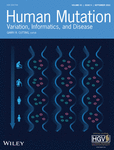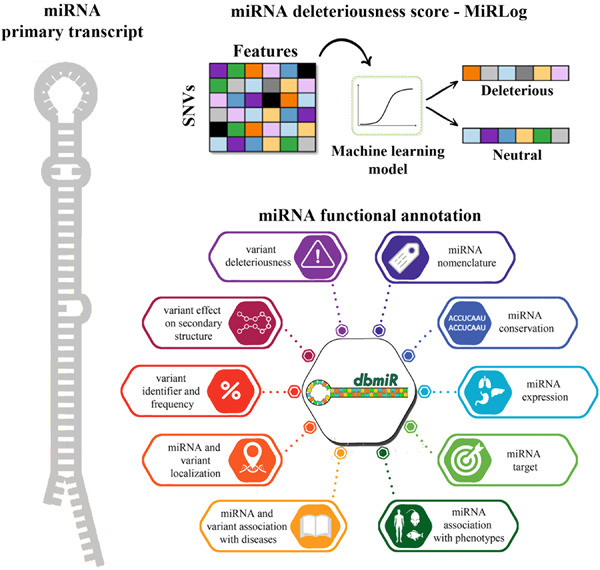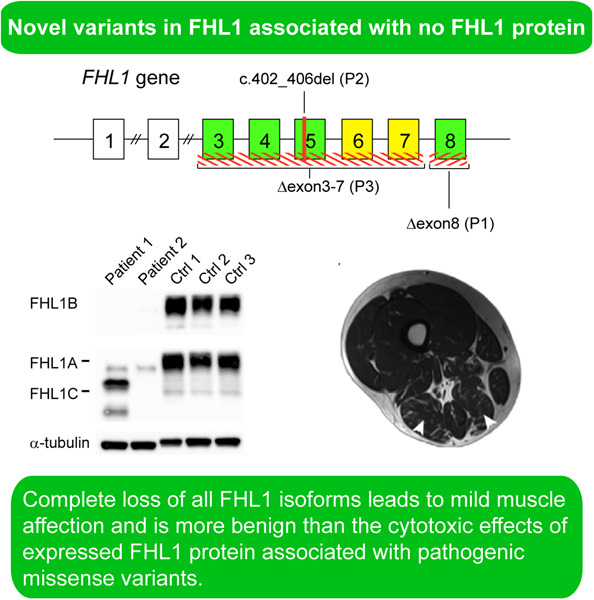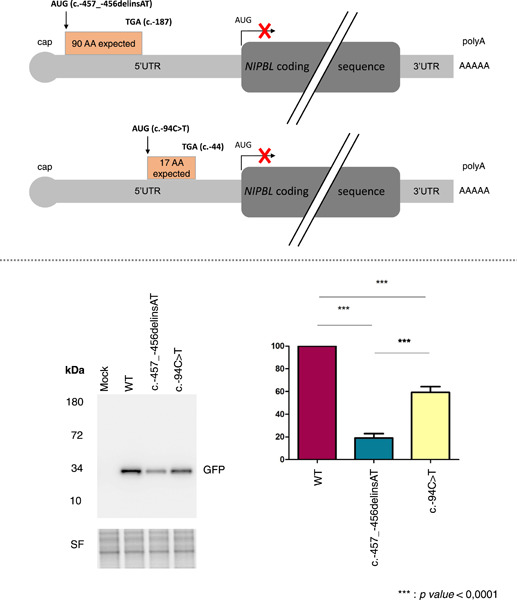Journal list menu
Export Citations
Download PDFs
Front Cover, Volume 43, Issue 9
- Page: i
- First Published: 03 August 2022
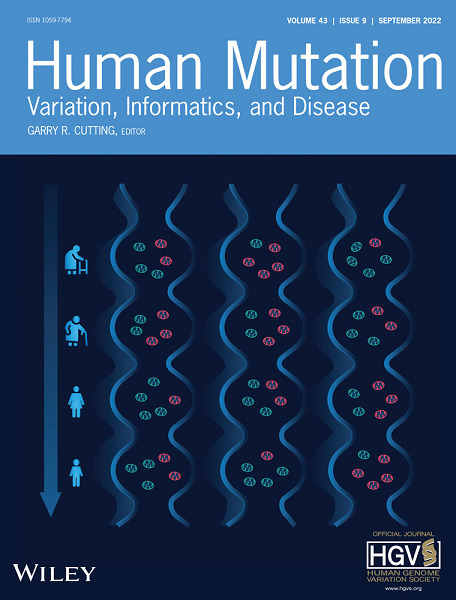
Front Cover: The cover image is based on the Research Article The transmission of human mitochondrial DNA in four-generation pedigrees by Sehrish Firyal et al., https://doi.org/10.1002/humu.24390.
Issue Information
- Pages: 1123-1124
- First Published: 03 August 2022
The TALE never ends: A comprehensive overview of the role of PBX1, a TALE transcription factor, in human developmental defects
- Pages: 1125-1148
- First Published: 22 April 2022
DOCKopathies: A systematic review of the clinical pathologies associated with human DOCK pathogenic variants
- Pages: 1149-1161
- First Published: 11 May 2022
The human ATP-binding cassette (ABC) transporter superfamily
- Pages: 1162-1182
- First Published: 01 June 2022
Mutation update: Variants of the ENPP1 gene in pathologic calcification, hypophosphatemic rickets, and cutaneous hypopigmentation with punctate keratoderma
- Pages: 1183-1200
- First Published: 27 April 2022
MiRLog and dbmiR: Prioritization and functional annotation tools to study human microRNA sequence variants
- Pages: 1201-1215
- First Published: 18 May 2022
Partial loss-of-function variant in neuregulin 1 identified in family with heritable peripheral neuropathy
- Pages: 1216-1223
- First Published: 29 April 2022
Autosomal dominantly inherited myopathy likely caused by the TNNT1 variant p.(Asp65Ala)
- Pages: 1224-1233
- First Published: 05 May 2022
Three novel FHL1 variants cause a mild phenotype of Emery-Dreifuss muscular dystrophy
- Pages: 1234-1238
- First Published: 24 May 2022
uORF-introducing variants in the 5′UTR of the NIPBL gene as a cause of Cornelia de Lange syndrome
- Pages: 1239-1248
- First Published: 21 April 2022
Predictive functional assay-based classification of PMS2 variants in Lynch syndrome
- Pages: 1249-1258
- First Published: 22 April 2022

Three-step classification of Lynch syndrome-associated Variants of Uncertain Significance (VUSs) in any of the DNA mismatch repair genes. (1) Protein VUSs are synthesized in vitro, based on sequence information provided by the clinical geneticist. (2) Their functional activity are assayed and quantified. (3) The odds of pathogenicity are calculated and incorporated in the final classification according to the American College of Medical Genetics and Genomics and the Association for Molecular Pathology BS3/PS3 criteria
The transmission of human mitochondrial DNA in four-generation pedigrees
- Pages: 1259-1267
- First Published: 23 April 2022
Large scale genotype- and phenotype-driven machine learning in Von Hippel-Lindau disease
- Pages: 1268-1285
- First Published: 27 April 2022
Altered closed state inactivation gating in Kv4.2 channels results in developmental and epileptic encephalopathies in human patients
- Pages: 1286-1298
- First Published: 05 May 2022
De novo truncating NOVA2 variants affect alternative splicing and lead to heterogeneous neurodevelopmental phenotypes
- Pages: 1299-1313
- First Published: 24 May 2022
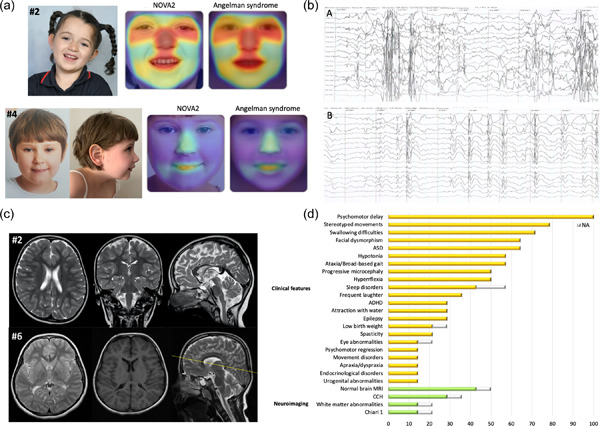
De novo truncating NOVA2 variants lead to heterogeneous neurodevelopmental phenotypes. We identified novel clinical features (psychomotor regression, behavioral disturbances, dyspraxia, and urogenital and endocrinological manifestations), and showed that NOVA2 variants affect alternative splicing events.
Benchmarking of univariate pleiotropy detection methods applied to epilepsy
- Pages: 1314-1332
- First Published: 27 May 2022
Burden of rare variants in arrhythmogenic cardiomyopathy with right dominant form-associated genes provides new insights for molecular diagnosis and clinical management
- Pages: 1333-1342
- First Published: 12 July 2022
EFEMP1 rare variants cause familial juvenile-onset open-angle glaucoma
- Page: 1343
- First Published: 01 May 2022
Type II Alexander disease caused by splicing errors and aberrant overexpression of an uncharacterized GFAP isoform
- Page: 1344
- First Published: 03 August 2022




